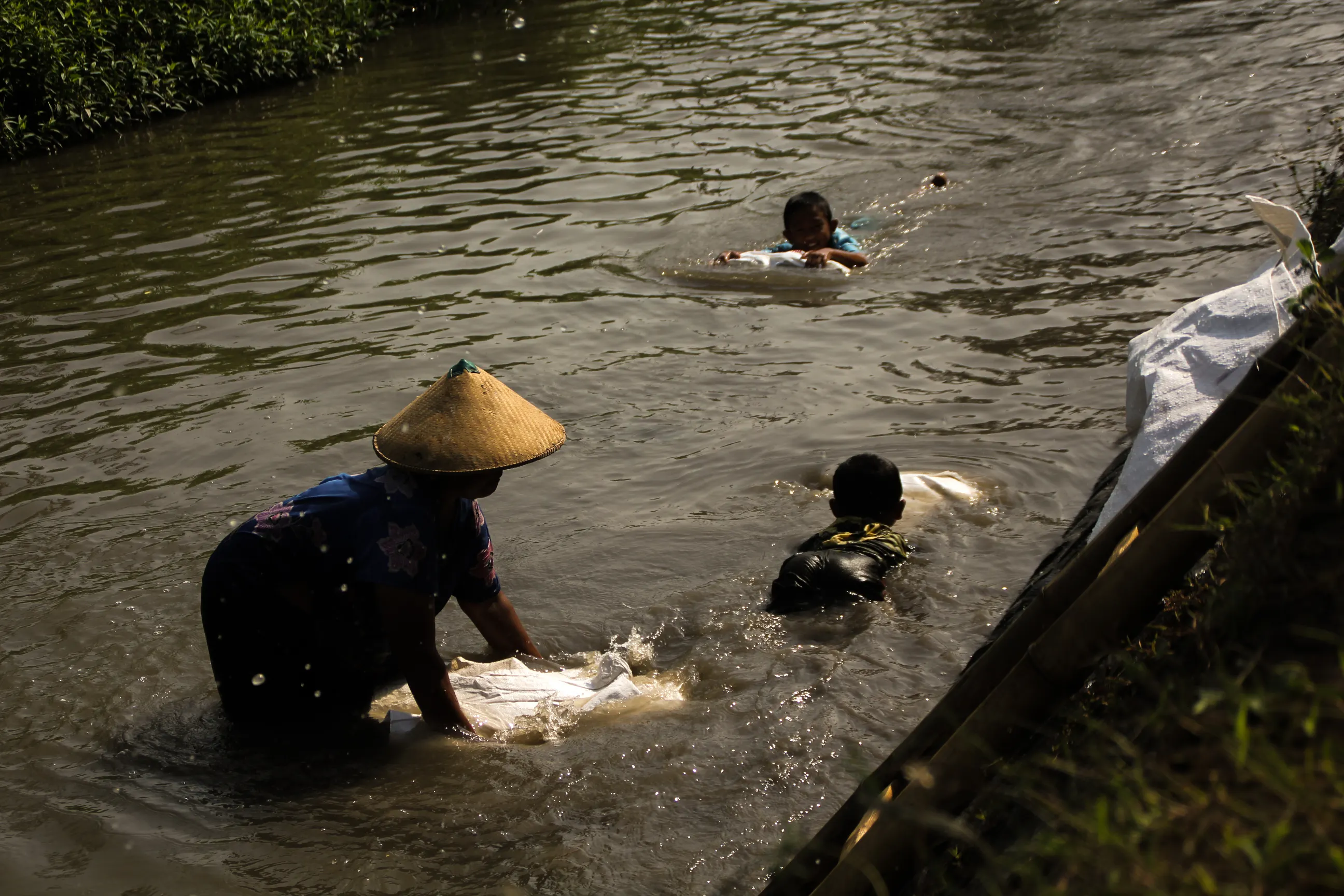Yu Djilah, a mother of three, could no longer find a job as a seasonal farmworker since the expansion of the male-dominated sugar cane plantations to her village. She used to work for food-crop farmers cultivating rice, corn, and soybean. In the past decade, Indonesia saw an increasing trend of importing these commodities and thus threatening the local commodity market, which further compelled affluent landowners to convert their farms into sugar cane plantations in her village.
 © 2014 Rahardhika Utama
© 2014 Rahardhika Utama
A recycling center in the village has been receiving even more orders from the cash-crop plantation industries to wash and repair used gunny sacks. Losing her job in the paddy field, Yu Djilah took part in this recycling business by washing the soiled gunny sacks in a nearby irrigation channel. She made around $5 a day (IDR 70,000) for a full day work washing, on average, five hundred gunny sacks under the heat of the Javanese sun while soaking in the muddy water.
The soiled gunny sacks often contain residual chemical substances from fertilizers, pesticide concentrate, and other factory wastes that pose a danger for the ecosystem in general, as well as indirectly affect precarious workers in the recycling industry like Yu Djilah. In the long term, these pollutants also threaten the food-crop cultivation that heavily dependent on water from the irrigation channel.
 © 2014 Rahardhika Utama
© 2014 Rahardhika Utama
The circular economy that carries the universal value of sustainability often inadvertently undermines the social life of its product in each node of its supply chain. The gunny sack recycling story featured in this photo essay demonstrates that the detrimental effects of the economy can also be circular, perpetuating environmental degradation, harmful farming practices, and precarious work.

